CDC redefines COVID-19 close contact, adds brief encounters
The CDC advises anyone who has been in close contact with a COVID-19 patient to quarantine for two weeks.
Share:
More Stories
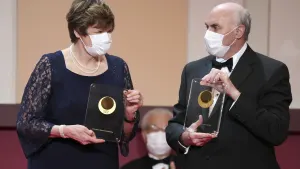
Nobel in medicine goes to 2 scientists whose work enabled creation of mRNA vaccines against COVID-19
584ds ago1:25
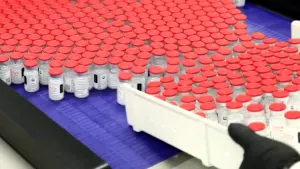
Pharmacies say they have not received orders for newest COVID booster
589ds ago0:21
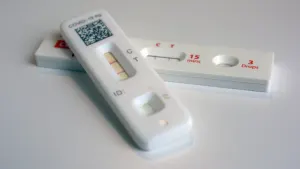
Biden administration announces $600M to produce COVID tests and will reopen website to order them
596ds ago0:41
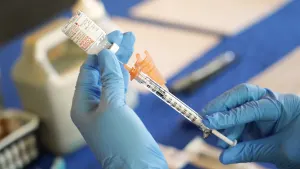
Gov. Hochul: Updated COVID-19 vaccine to be available in NY in the coming days
603ds ago2:13
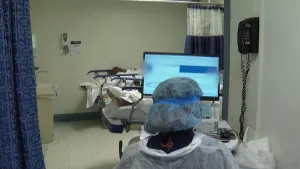
NYSDOH: COVID numbers up with new variant accounting for 17% of new cases
637ds ago2:30
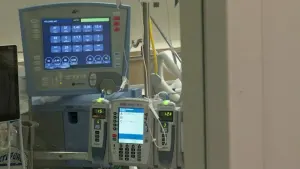
NYSHD: Hospitalizations caused by COVID increase by 22% in a week
645ds ago
Nobel in medicine goes to 2 scientists whose work enabled creation of mRNA vaccines against COVID-19
584ds ago1:25

Pharmacies say they have not received orders for newest COVID booster
589ds ago0:21

Biden administration announces $600M to produce COVID tests and will reopen website to order them
596ds ago0:41

Gov. Hochul: Updated COVID-19 vaccine to be available in NY in the coming days
603ds ago2:13

NYSDOH: COVID numbers up with new variant accounting for 17% of new cases
637ds ago2:30

NYSHD: Hospitalizations caused by COVID increase by 22% in a week
645ds agoU.S. health officials Wednesday redefined what counts as close contact with someone with COVID-19 to include briefer but repeated encounters.
For months, the Centers for Disease Control and Prevention said close contact meant spending a solid 15 minutes within 6 feet of someone who tested positive for coronavirus. On Wednesday, the CDC changed it to a total of 15 minutes or more — so shorter but repeated contacts that add up to 15 minutes over a 24-hour period now count.
The CDC advises anyone who has been in close contact with a COVID-19 patient to quarantine for two weeks.
The change may prompt health departments to do contact tracing in cases where an exposure might previously have been considered too brief, said Dr. William Schaffner, a Vanderbilt University infectious diseases expert.
It also serves notice that the coronavirus can spread more easily than many people realize, he added.
The definition change was triggered by a report on that case of a 20-year-old Vermont correctional officer, who was diagnosed with a coronavirus infection in August. The guard, who wore a mask and goggles, had multiple brief encounters with six transferred prisoners before test results showed they were positive. At times, the prisoners wore masks, but there were encounters in cell doorways or in a recreational room where prisoners did not have them on, the report said.
An investigation that reviewed video footage concluded the guard's brief interactions totaled 17 minutes during an 8-hour shift.
The report didn't identify the prison but Vermont officials have said that in late July, six inmates tested positive when they arrived at the Marble Valley Correctional Facility in Rutland.
In a statement, CDC officials said the case highlights again the importance of wearing masks to prevent transmission, and that the agency's guidance can change as new information comes in.
"As we get more data and understand this COVID we're going to continue to incorporate that in our recommendations," CDC Director Robert Redfield said at a press conference in Atlanta.
The CDC also says close contact can include hugging and kissing, sharing eating or drinking utensils with someone infected, and providing home care to someone who is sick. Someone sneezing or coughing on you also counts.
The risk of spread is considered to be lower outdoors, but the CDC guidance update "makes scientific sense," said Dr. Michael Saag, an infectious disease researcher at the University of Alabama at Birmingham.
More from News 12
3:20

Long Islanders react to the naming of the Pope Leo XIV
1:30

STORM WATCH: Periods of rain through Friday, chance for thunderstorms
1:32

Police: Florida man leads officers on chase across Suffolk County
1:39

Community weighs in on plans to improve safety on notorious stretch of Southern State Parkway
1:45

First-ever Angel Baby Gala held for mothers who lost a child
1:24
